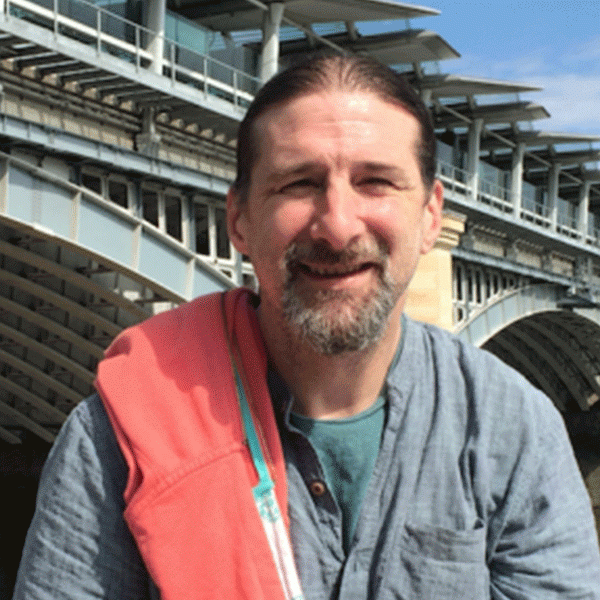Peter Kind (Affiliate)
Examining cellular and circuit dysfunction associated with monogenic forms of autism and intellectual disability.

Research in a Nutshell
The Kind laboratory examines how cellular and circuit dysfunction leads to altered behaviour in models of autism and intellectual disability. Our research is designed to address two key questions:
1. Do developmental disorders have critical periods for treatment?
For decades it was believed that the adult brain was hard-wired, and that interventions for autism would be most effective if implemented during the first few years of life. This dogma has recently been questioned for several monogenic forms of autism with intellectual disability. To determine whether there are critical periods for therapeutic intervention, we employ proof-of-concept genetic and pharmaceutical rescue studies to determine the effectiveness of potential therapies.
By employing a systematic approach to reversibility, as well as identifying developmental trajectories for the appearance of cellular, circuit and cognitive deficits, we address fundamental questions about the extent to which autism can be treated throughout the lifespan.
2. Does genetic heterogeneity mask underlying convergence onto a common developmental pathophysiology?
Of the many genes that have been causally-linked to autism, many cluster around common cellular processes including synaptic function and epigenetic regulation. This genetic convergence raises the possibility of common therapeutic avenues for diverse genetic causes. We examine whether different genetic models of autism display recurrent cellular, circuit and/or behavioural phenotypes that respond to common treatment strategies.
Our recent studies suggest many of the cellular phenotypes observed in our models reflect homeostatic or compensatory changes in neuronal function. These compensatory changes serve to lessen the cellular and circuit effects of genetic mutations and could explain, in part, apparent physiological and behavioural convergence between models.
People |
|
|
Peter Kind |
Professor of Developmental Neuroscience |
| Owen Dando | Postdoctoral Fellow |
|
Anjanette Harris |
Postdoctoral Fellow |
| Emma Perkins | Postdoctoral Fellow |
|
Xin He |
Postdoctoral Fellow |
| Felicity Inkpen | Postdoctoral Fellow |
|
Jorge Maicas Royo |
Postdoctoral Fellow |
| Sally Till | Postdoctoral Fellow |
|
Anna Toft |
Postdoctoral Fellow |
|
Thomas Watson |
Postdoctoral Fellow |
| Darren Walsh | Postdoctoral Fellow |
|
Kosala Dissanayake |
Postdoctoral Fellow |
| Raven Hickson | PhD Student |
| Mary O'Keeffe | PhD Student |
| Vanesa Salazar Sanchez | PhD Student |
| Jingjing Ye | PhD Student |
|
Mahdie Ezabadi |
PhD Student |
|
Lynsey Dunsmore |
Technical Manager |
|
Karen Biggar |
PA |
|
Jane Wright |
SIDB Centre Administrator |
|
Nicole Cuthbert |
Research Technichian |
|
Dan Giffney |
Research Technichian |
|
Chloe Henley |
Research Technichian |
|
Will Farnworth-Rowson |
Research Technichian |
|
Brittany Prokop |
Research Technichian |
| Jess Rodda | Research Technichian |
Contact
Collaborations
- Mark Bear, Picower Centre, MIT, Cambridge, USA
- Matt Jones, University of Bristol
- Frank Sengpiel, University of Cardiff
- Robert Datta, Harvard University
- Siddharthan Chandran, University of Edinburgh
- Sumantra Chattarji, University of Edinburgh
- Giles Hardingham, University of Edinburgh
- Emily Osterweil, University of Edinburgh
- Nathalie Rochefort, University of Edinburgh
- David Wyllie, University of Edinburgh
- Emma Wood, University of Edinburgh
- Sam Booker, University of Edinburgh
- Adrian Bird, University of Edinburgh
- Oliver Hardt, University of Edinburgh
- Alfredo Gonzalez-Sulser, University of Edinburgh
- Stuart Cobb, University of Edinburgh
Scientific Themes
Neurodevelopmental disorders, autism, intellectual disability, behaviour, cellular and circuit electrophysiology, rats
Technology Expertise
Electrophysiology, imaging, behaviour


